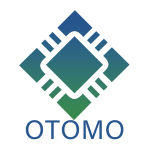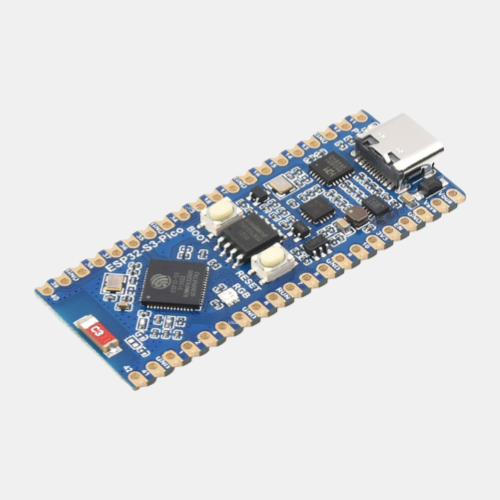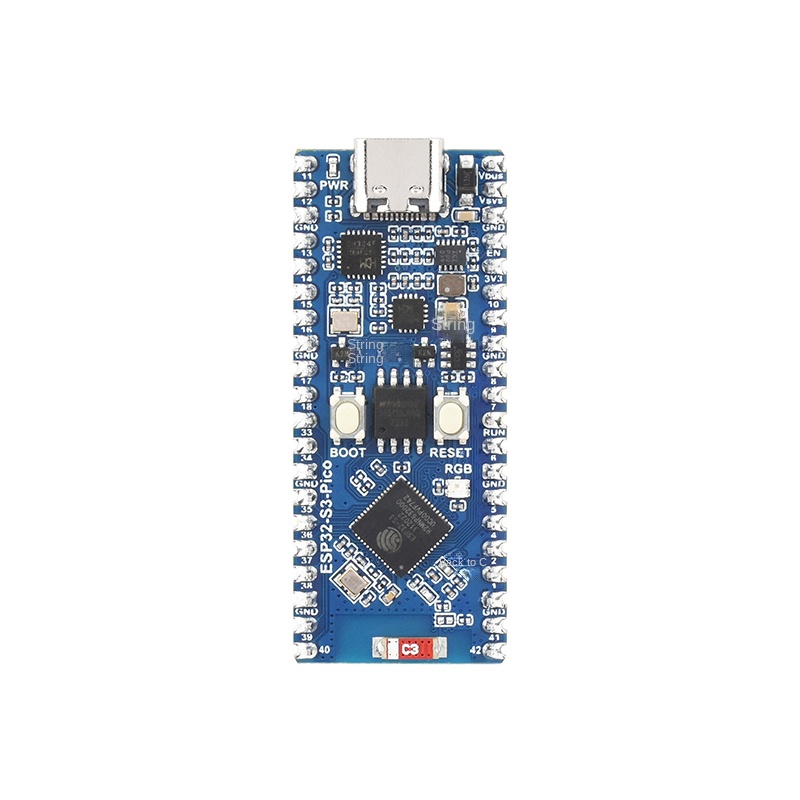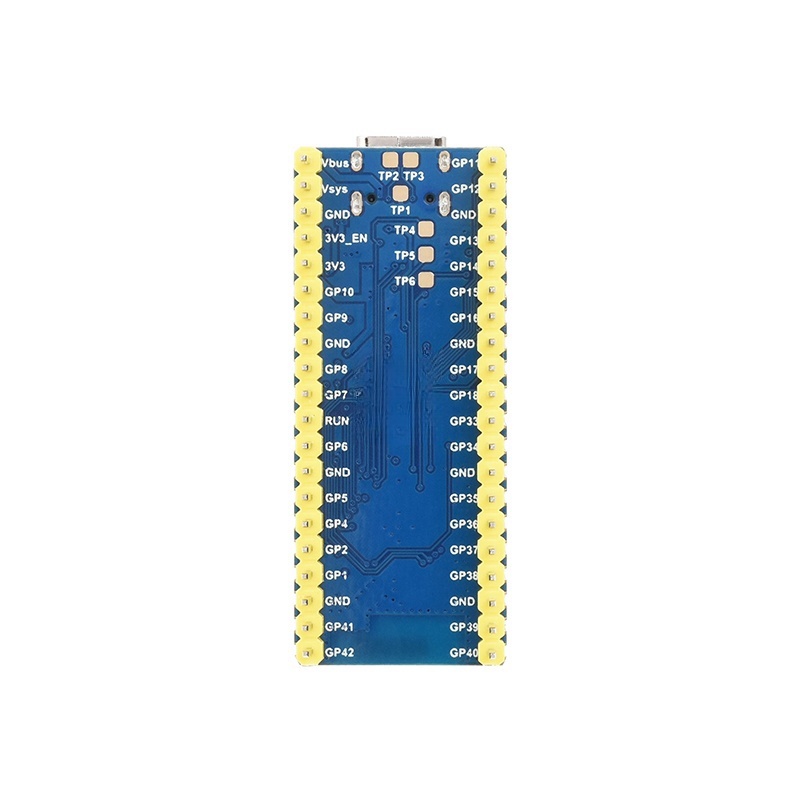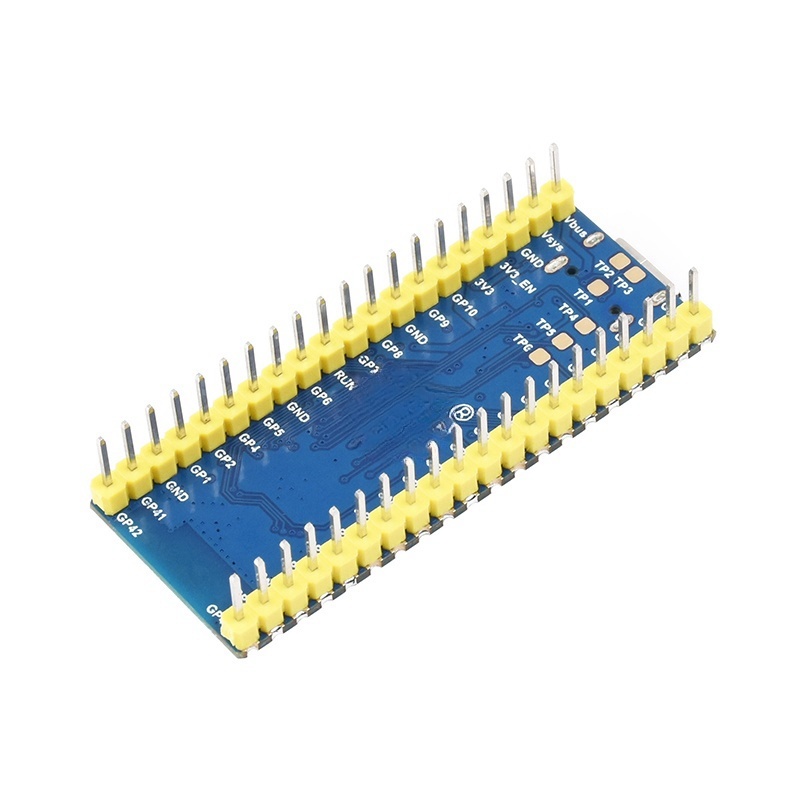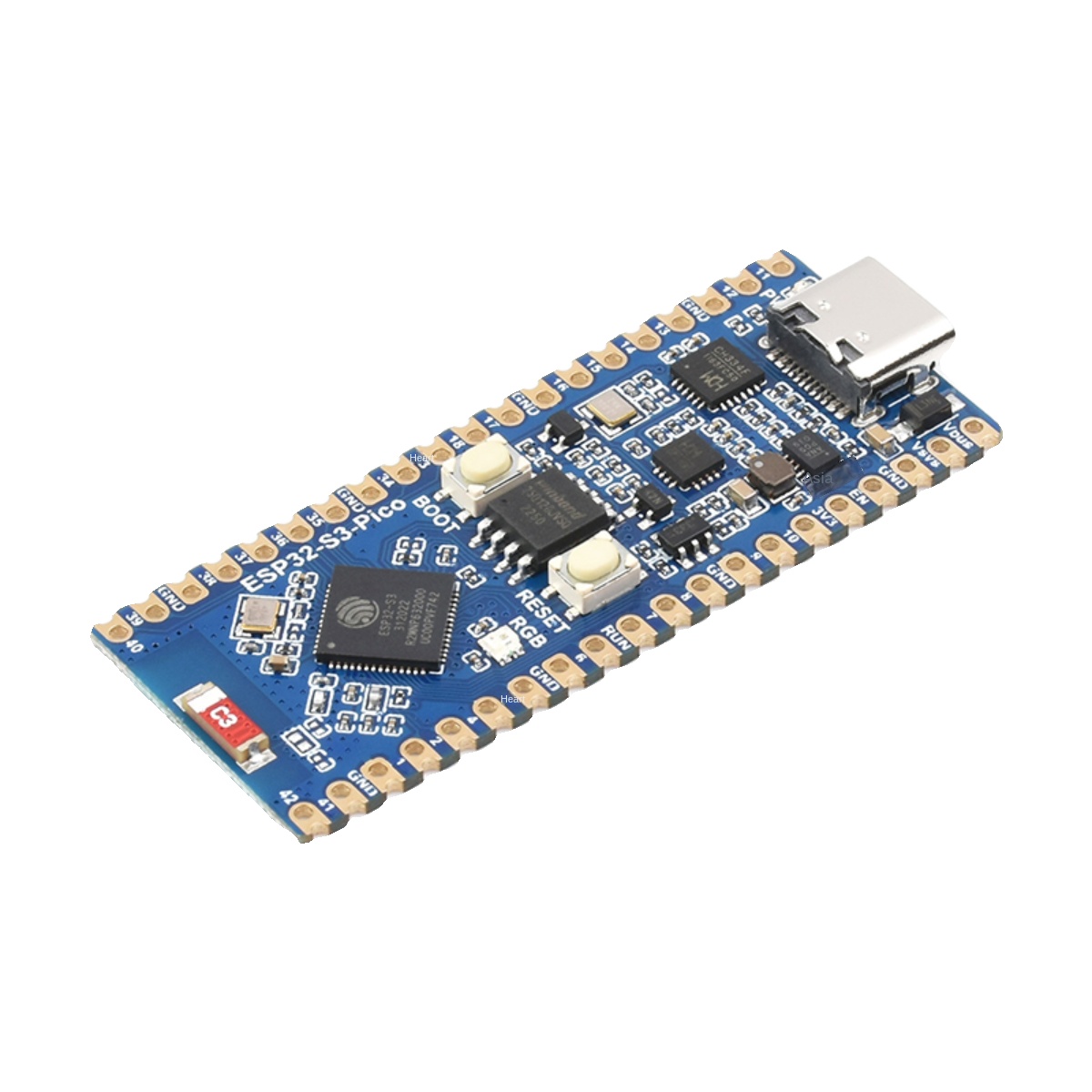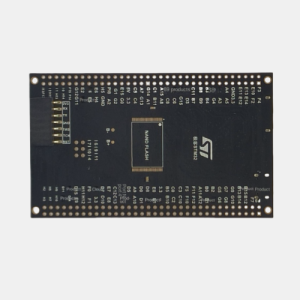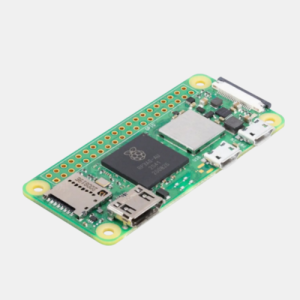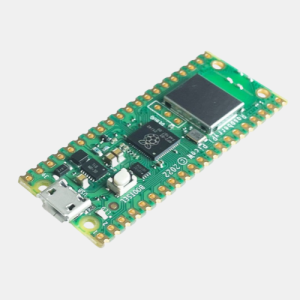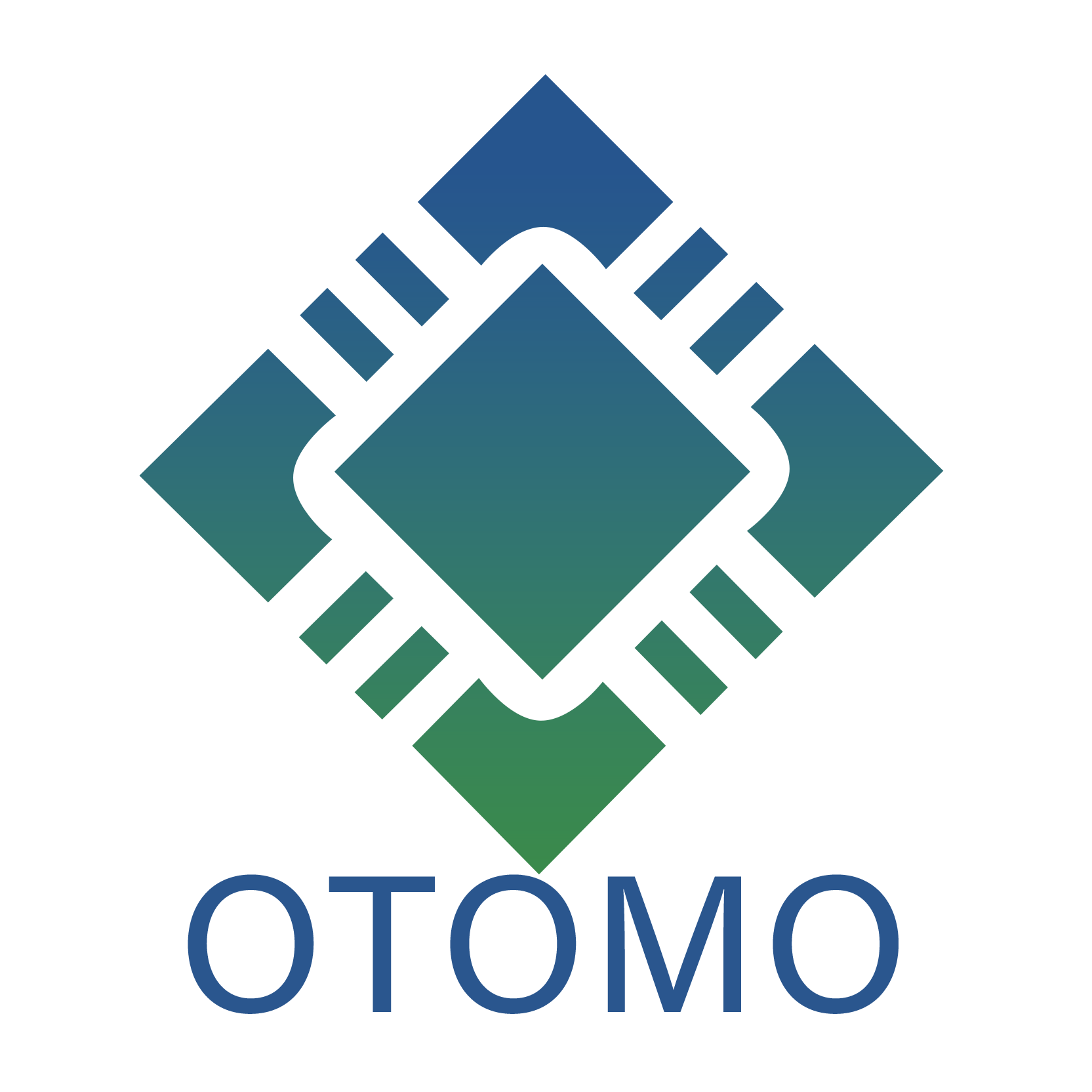- Home
- ESP32-S3 Pico
product
ESP32-S3 Pico
| Name | ESP32-S3 Microcontroller |
| Product Features | Using ESP32-S3R2 as the main chip, equipped with an Xtensa 32-bit LX7 dual-core processor, the main frequency is up to 240MHz mm512KBSRAM、384KBROM、2MBPSRAM16MB Flash memory integrated 2.4GHz Wi-Fi and Bluetooth low energy (Bluetooth LE) dual-mode none Line communication, with superior RF performance Using the USB-C interface, there is no need to tangle the positive and negative onboardion Onboard CH343 and CH334 chips, through a Type-C interface, can meet the needs of USB and UART developmeOnboardse On-board DC-DC chip MP28164 for a high-efficiency DC-DC buck-boost chip, load current up to 2A Up to 274 Multi-function GPlpinoutut Rich peripheral interfaces, including full-speed USB OTG、SPI, 、I2CUART, ADC, PWM, and DVP(8-bit ~16-bit camera interface Interface(8 Bit ~16 Bit parallel RGB、18080MOT06800, etc), can be more flexible to achieve various functions. Stamp hole design, which can be directly welded and integrated into the user-designed base plate. Supports multiple low-power operating states with adjustable communication distance, data rate, and power consumption balance between the power consumption requirements of various applicationscenarioss Support Raspberry Pi Pico expansion board ecology, suitable for artificial intelligence and IoT |
Product description
ESP32-S3 Pico is a compact development board that combines powerful wireless communication, efficient processing, and flexible expansion. With integrated Wi-Fi and Bluetooth, low power consumption, and rich peripheral interfaces, it is designed for rapid prototyping and diverse IoT applications. Its lightweight design and versatile functions make it well-suited for smart devices, sensor networks, and wearable electronics.
Key Features
1. Powerful wireless communication with built-in 2.4GHz Wi-Fi and Bluetooth for stable connectivity across short- and long-range scenarios.
2 . Efficient microcontroller performance with low power consumption, balancing fast data processing and extended battery operation.
3. Compact design with flexible expansion, supporting sensors, actuators, and peripherals through multiple interfaces.
4. Development-friendly platform offering quick prototyping and streamlined integration into IoT projects.
Application Areas
Internet of Things (IoT): Smart home and industrial IoT systems for device interconnection, remote monitoring, and equipment management.
Intelligent Hardware: Wearables, smart toys, and portable devices with wireless data sync, system updates, and interactive functions.
Wireless Sensor Networks: Environmental monitoring, healthcare devices, and other real-time data collection and transmission applications.
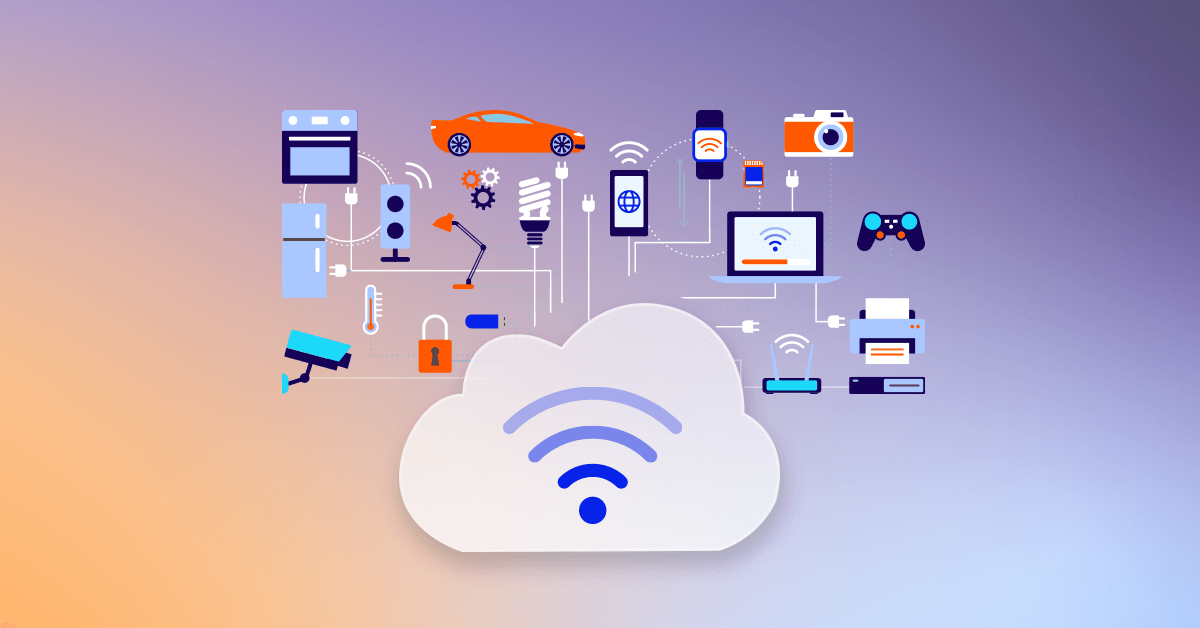
Product Details:










Related Products
Related products are complementary or similar items that enhance functionality, meet specific needs, or expand applications in a product range.
